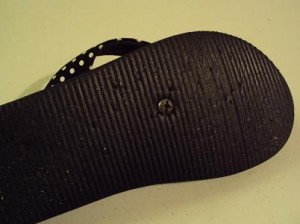Recently Louisa and I were back in the Chicago area cruising the streets of our old neighborhood. We landed at a familiar shopping center, enjoying stores our Michigan neighborhood doesn’t offer, and I noticed the absence of one I’d shopped at many times during the decades we’d lived nearby: the GAP.
Located on the “power corner” of a giant parking lot, the GAP had been full of high quality, youthful clothes for men, women, children and babies, and seemed always to be full of customers. Now it was abandoned. The chain was founded in the late 1960’s, originally stocking only jeans and white cotton shirts that appealed to young people. They chose their name as a description of the gap between generations: adults bought jeans as work clothes, while younger people were starting to wear them every day.
Whenever I drove past the GAP, the store’s name would remind me of a different sort of gap, “standing in the gap” for a friend. My impression was that this phrase referred to one person praying for someone else when that someone wasn’t praying for herself.
For example, if a friend was battling depression, unable or unwilling to ask God for help, I could “stand in the gap” between the Lord and my friend, praying for the two to connect.
When Louisa and I got back to Michigan, I decided to find out if the gap-idea came from the Bible or was just a concept I wished came from the Bible. My concordance directed me to Ezekiel 22 and a narrative about the break or gap in a protective city wall. God said, “I looked for someone… who would build up the wall and stand before me in the gap on behalf of the land so I would not have to destroy it, but I found no one.” (v. 30)
He was speaking in word pictures his people readily understood, about to deliver a judgment for their sinfulness. Viewing their many offenses as a break in the wall of righteousness, he was planning to lower the boom, but before he did, he looked for a righteous someone who might be “standing in the gap” for the rest of them. Such a one would have represented godliness amidst a people of disobedience and might have caused God to abort his judgment. No one was in the gap, so judgment came.
I learned that my original idea of being able to “stand in” for someone through prayer is probably accurate. And if so, what an opportunity! It brings profound implications to our prayers for others.
As for the GAP, Inc., Google said it’s been shuffling store locations recently but is still going strong in the clothing industry. As for the generation gap? I own a few GAP items myself, so I think it’s probably long gone.
“Pray in the Spirit on all occasions with all kinds of prayers and requests. With this in mind, be alert and always keep on praying…” (Ephesians 6:18)




